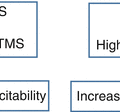© Springer International Publishing AG 2018
Stefano Masiero and Ugo Carraro (eds.)Rehabilitation Medicine for Elderly PatientsPractical Issues in Geriatricshttps://doi.org/10.1007/978-3-319-57406-6_3737. Neuropsychological Aspects of Language in Older Adults
(1)
University of Udine, Udine, Italy
(2)
Claudiana – Landesfachhochschule für Gesundheitsberufe, Lorenz-Böhler-Straße 13, Bozen, 39100, Italy
37.1 Introduction
Language relies on the integrated organization of a within-utterance or microlinguistic dimension, which is required for intrasentential functions, and a between-utterance or macrolinguistic dimension, necessary for intersentential functions [1]. The microlinguistic dimension organizes phonemes into morphemes and words (lexical processing). It also determines the syntactic context required by a word in order to generate well-formed sentences (syntactic processing) and the literal meaning expressed by single words (lexical semantics) and entire sentences (phrasal semantics). The macrolinguistic dimension determines the contextually appropriate meaning of a word or sentence (pragmatic processing) and connects sentences or utterances by means of cohesive and coherent links in order to formulate the main theme of narrative discourse and integrate its linguistic and conceptual features (discourse processing). This complex cognitive function declines gradually in the elderly [2], as a consequence of the complex interplay between the intrinsic deterioration of the linguistic system and the cognitive decline [3]. This brief chapter focuses on some of the alterations induced by healthy aging on language production skills.
37.2 Age-Related Effects on Microlinguistic Processing
Even if the mental lexicon keeps growing during the lifespan and older adults usually have larger vocabularies than younger individuals [2, 4] at least until they enter in their 80s and 90s [5], studies assessing naming skills and tip of the tongue states in healthy aging show that the ability to retrieve words from memory weakens already after the age of 50 [6] but significantly deteriorates in people in their 70s [7]. Similarly, also grammatical skills gradually decline with age: older individuals produce fewer complex sentences [8] and have more difficulties in the retrieval of function words [9]. The possibility of an age-induced grammatical weakening is supported also by the results from studies using different techniques. For example [10], older participants produced narrative descriptions with more morphological errors and fewer complete sentences than younger groups of individuals aged from 20 to 60 years. It has been suggested that this grammatical weakening is at least partly related to the decline in verbal working memory which is frequently observed in the elderly [11].
Overall, the studies focusing on microlinguistic production skills in the elderly suggest that both lexical and grammatical skills deteriorate with aging. Even if most of the existing reports have focused on the traditional assessment of lexical and grammatical skills (e.g., naming tasks and sentence generation tasks), in order to have a more detailed picture of lexical and grammatical production skills in the elderly, there is a need for more studies employing tasks that allow speakers to produce samples of narrative discourse [12].
37.3 Age-Related Effects on Macrolinguistic Processing
The process of aging affects also macrolinguistic abilities. The narratives produced by older individuals are typically characterized by augmented verbosity [13] and reduced cohesive and coherent organization. For example, Kemper and Sumner [11] showed that the narrative discourse produced by persons in their 70s and 80s contained more errors of both local (i.e., missing or ambiguous referents and topic shifts) and global (i.e., tangential utterances and semantically erroneous formulations) coherence than that of adults in their 20s and 30s. The absence of a significant difference between the oldest group’s performance and that of the middle-aged suggests that the production of local coherence errors is a gradual side effect of aging, which is likely to start already when people enter in their 50s. Aging weakens also global coherence, i.e., the ability to semantically relate remote utterances within a given discourse. When older adults are involved in spontaneous conversation, they produce more off-topic speech than younger individuals (e.g., [14]). This is why the narrative discourse of older people is often perceived as vague and incoherent. The narrative weaknesses observed in the elderly might not entirely depend on a linguistic disturbance per se [3]. According to the inhibition deficit hypothesis [15], in the elderly, the ability to suppress irrelevant pieces of information and focus on the main stream of a narrative might be weakened because of a declined ability to monitor the process of message production. This might eventually trigger the introduction of extraneous comments and derailments while generating a story.
Stay updated, free articles. Join our Telegram channel

Full access? Get Clinical Tree





